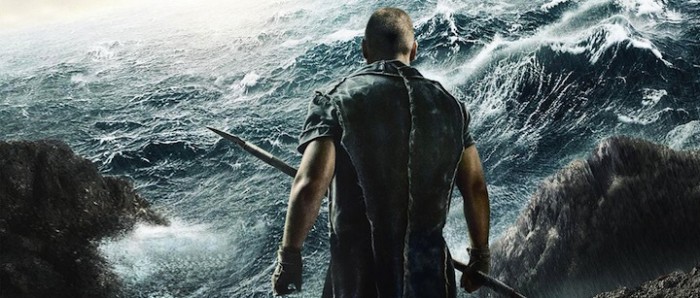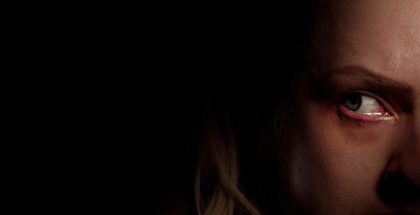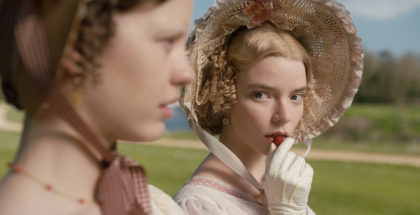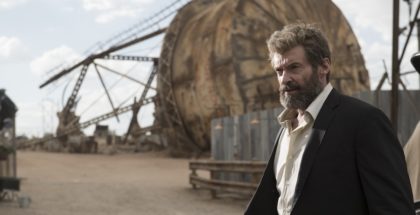VOD film review: Noah
Review Overview
Visuals
8Cast
8Giant rock monsters with six arms
8David Farnor | On 29, Jul 2014
Director: Darren Aronofsky
Cast: Russell Crowe, Jennifer Connelly, Emma Watson, Logan Lerman, Ray Winstone
Certificate: 12
Everyone knows Noah. The tale of an ancient cataclysmic flood is embedded in civilisations the world over, regardless of creed or culture – it’s a story that resonates with humanity, one that bears retelling.
Does that mean it’s true? Is it a literal tale from the heavens? An account of historical fact? A metaphorical illustration produced by the church? Whose story is it? Ours? God’s?
The latest interpretation from Darren Aronofsky is both, or neither. It is at once secular yet religious; faithful yet liberal.
Aronofsky sticks closely to the source material, even including the part where Noah gets drunk on wine. But alongside the boat, animals and rain, he raids the non-canonic scriptures to include the Nephilim, or “giants” (mentioned in some versions of Genesis 6:4), which he portrays as rock-clad fallen angels who stomp around like a cross between Transformers and Treebeard.
Their addition has prompted atheists to label the film ridiculous – for some, laughably so. For believers, they mark a major departure from the Bible – for some, sacrilegiously so. Comparisons have widely been made with The Lord of the Rings, but the insertion of additional material is closer to Peter Jackson’s treatment of The Hobbit; this is an expanded narrative borrowing from other texts, but overall no more ridiculous than any other cinematic story seen on screen in recent years. And, its origin aside, that’s what Noah is: a story. One that, depending on your personal belief, carries many meanings or none at all.
Aronofsky’s version highlights its central environmental themes, as The Creator (“God” isn’t mentioned once) decides to wipe out humanity after they have abused the Earth. The men, we learn, mine it for zohar – a magical, fire-giving substance – and eat the flesh of beasts to give them strength. But Noah’s family does the opposite, not even picking pretty flowers to admire: “We only take what we need,” he teaches his loyal eldest, Shem (a committed Douglas Booth).
His middle son, Ham (a believably twitchy Logan Lerman), is curious about the lifestyle of the other men. We know this because his mum, Naameh (Connelly), says so to Noah.
“The animals are innocent,” explains Ila (Watson) when the subject of why the beasts are being saved comes up. “They live as they did in the garden.”
These are just two of many ripe chunks of dialogue. As Anthony Hopkins’ granddad Methuselah pops up to talk about berries for the seventh time, you wonder whether Ham wrote the script. But the excellent cast sell their speeches with a straight-faced sincerity. Connelly and Crowe, in particular, prove that their chemistry in A Beautiful Mind was no accident. Ray Winstone, meanwhile, gnaws at his pork-filled role as the sinful leader of men, Tubal-Cain. “Damned if I don’t do what it takes to survive,” he rumbles.
The person who makes the biggest waves, though, is Emma Watson. Playing Noah’s adopted – and barren – daughter with engaging conviction, she’s the most extreme alteration to the ark tale as we know it. Shacked up with Shem, Watson’s character becomes a vessel for the themes of destruction and creation; death and birth; punishment and forgiveness.
God’s judgement is final, as far as Noah is concerned – despite his family trying to tempt him otherwise. That conflict between human empathy and heavenly destruction allows Aronofsky to explore his signature premise of a tortured protagonist and Crowe is a perfect fit, beating his bow with righteous zeal. His obsessive devotion is backed up by stunning visual effects, which see the camera free-fall from the sky like rain before dripping onto his forehead. When it comes, the deluge makes The Day After Tomorrow look like Trumpton.
Even once on the ark surrounded by CGI creatures, Darren doesn’t dial down the destruction. Any images of a cosy family singalong surrounded by zebras are dispelled by the screams of dying people; hints of realism inserted between the brief verses of Genesis 6 through 8. This only drives Noah’s guilt even higher, turning the quaint Sunday school story into a serious exploration of faith and obedience. How far can one man follow orders from an unseen Creator? Is it God’s or man’s decision to kill other men?
Watson’s wide-eyed innocence offers a moving contrast to Crowe’s hard-nosed resilience – there may not be floods of tears, but you will well up – while a liberal sprinkling of Abraham and free will implies that perhaps humankind’s biggest sin is a love of its own continuing existence.
Boldest of all, though, is one sequence in the middle of the film, when Noah pauses the Biblical plot to retell the book’s opening chapters. “In the beginning, there was nothing”, we’re told. What follows is a breathtaking time-lapse montage, a barrage of colours and sounds, which is worth watching the film for alone. Racing through the universe’s early days accompanied by Clint Mansell’s transcendent score, it fuses creation and evolution in a way that, much like Watson’s Ila and the CGI Nephilim, feels both somehow subversive in content and faithful in spirit – not just to the Bible, but to Aronofsky’s Noah.
That, more than anything, is what this is. Not mankind’s story or God’s story, but Aronofsky’s story. One that resonates with a new-found humanity. Darren’s achievement here is not to laugh or lecture, but to bring this tale vividly to life for modern audiences, regardless of creed or culture. With a mind-boggling ambition and the awe-inspiring confidence to deliver it, Aronofsky’s Noah is a thrilling, shocking, daringly unique piece of cinema. It proves beyond all doubt that this is one story worth retelling.




















